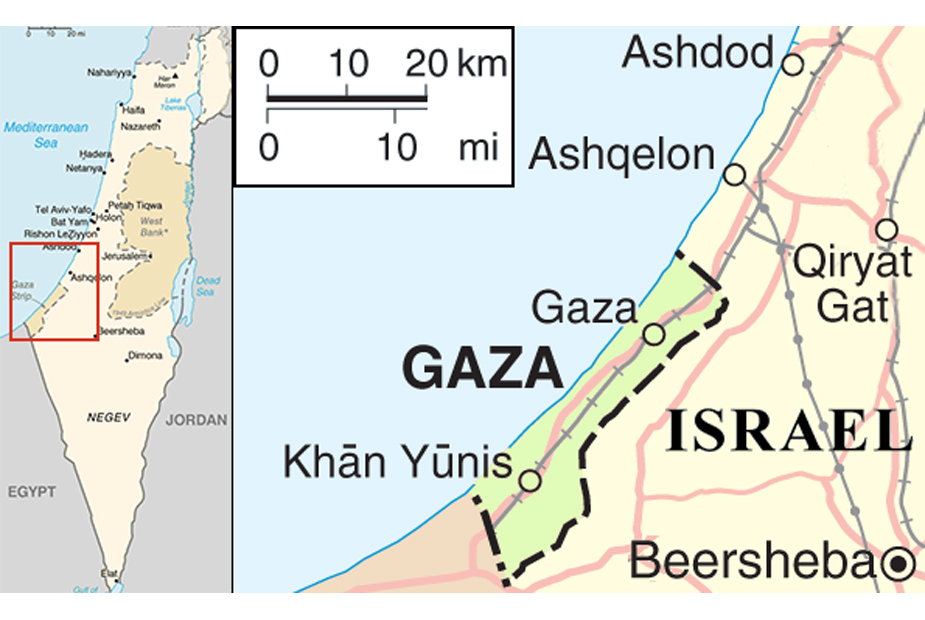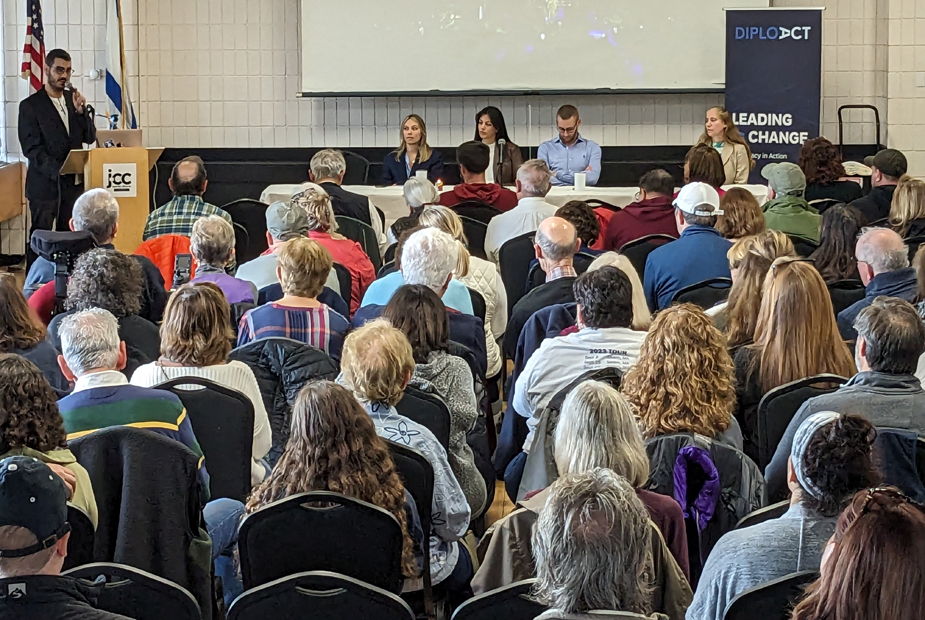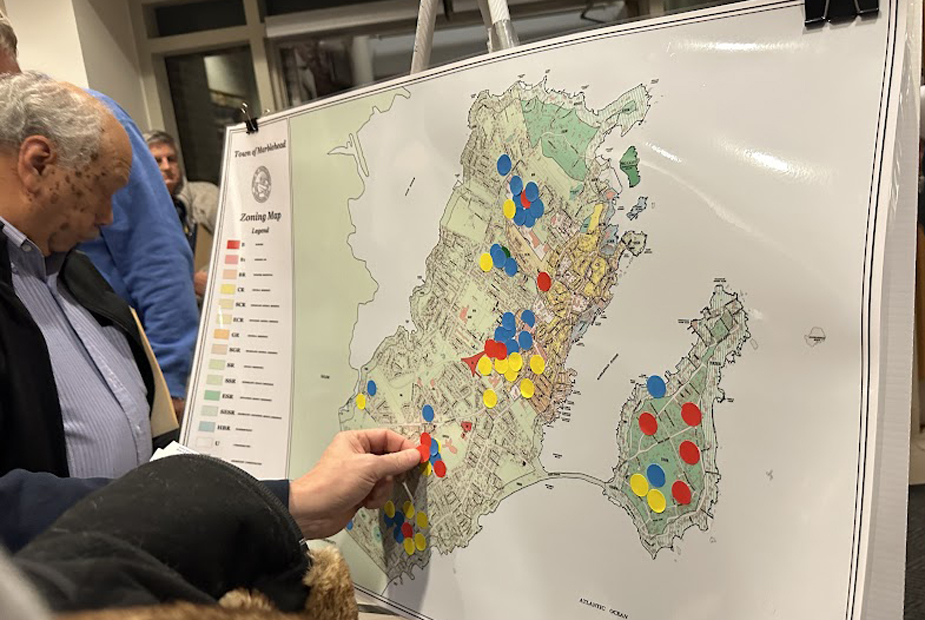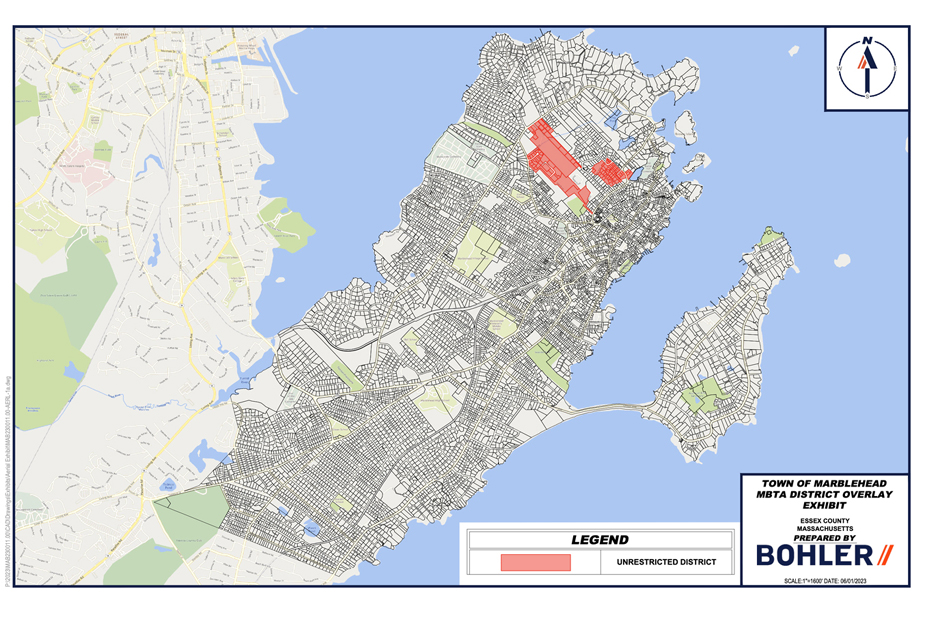Marbleheaders with Ties to Israel Share Heartbreak, Horror, and Disbelief
“I feel privileged and guilty that my kids are sleeping safely,” Marbleheader Yael Magen—who has dual American/Israeli citizenship—recently told Marblehead Beacon. Since her husband woke her at 2:00 a.m. on October 7, 2023 with the words, “I think a war just broke out in Israel,” she has thought of little other than her extended family and friends—currently spending much of their time in bomb shelters—and what she can do from afar to help.
Israel is a small country, with a land mass the size of New Jersey and a population of just over nine million, approximately seven million of whom are Jewish. The total worldwide population of Jews is estimated at just about 16 million. It is a very small number—just 0.2 percent of the world’s population—but often feels even smaller, say many Jews. Jewish geography is a familiar game played whenever Jews meet each other for the first time. In a community so small, everyone tends to know someone’s sister, uncle, cousin, or childhood friend. And so, when Israel is attacked, when thousands of people are murdered, injured, or abducted, few are more than a degree or two of separation away from experiencing the tragedy personally.
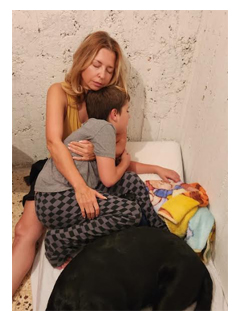
As of this writing, at least 1,200 Israeli citizens have been killed and thousands more wounded. More than one hundred people—families, women, small children, and senior citizens—have been taken hostage and are being held at unknown locations. Hundreds of celebrants were murdered at an open-air music festival. Families hiding in their homes were slaughtered. Women were raped, their battered bodies paraded through the streets. Just hours ago, Israel’s most well-known media outlet confirmed verified the images of beheaded Israeli babies. Many of these atrocities were videoed and posted online by the perpetrators themselves.
These attacks were carried out by Hamas, the internationally recognized terrorist organization that was elected by the residents of Gaza, a 25-mile long by six-mile wide strip of land that lies on the eastern edge of the Mediterranean Sea, with Egypt at its southern border and Israel to its north and east.
Hamas first won power in Gaza during parliamentary elections following the 2005 Israeli decision to withdraw from the territory and allow the people of Gaza to self govern. Prior to that, the land had been acquired by Israel during the Six-Day War of 1967, when Israel fought against a coalition of its neighbors and ultimately gained control of territory that also included the Sinai peninsula (eventually returned to Egypt in a peace treaty), the Golan Heights, the West Bank, and East Jerusalem. After Israel decided to withdraw from Gaza, it eliminated its military presence and resettled all Jewish residents in communities in Israel. The Palestinian Authority—which still serves as the governing body in the West Bank—initially played a role in governing Gaza as well, but it was expelled by Hamas during a violent conflict in 2007. Hamas has ruled in Gaza ever since.
Since Israel’s withdrawal, thousands of rockets have been sent from Gaza to target nearby Israeli settlements, and battles have flared up regularly. In recent years, however, disruptions from the Gaza strip had been noticeably reduced, a calm that Israel appears to have attributed to a renewed focus on improving the quality of life for Gaza’s citizens. Israel had been issuing increasing numbers of work permits, allowing residents of Gaza to cross the border for job opportunities that pay a substantial wage premium. But it now appears that the unusual period of calm may only have been a diversion.
Early on Saturday morning—while Jews were celebrating the Sabbath and the final days of the Sukkot holiday—the 40-mile security fence that separates Gaza from Israel was breached in multiple spots. Hundreds of Hamas militants swarmed into Israel, shooting, raping, and terrorizing indiscriminately. Some used gliders to fly over the border. In a matter of days, they took a hundred or more civilians back into Gaza to be held as hostages, used either as bargaining chips or human shields. The hostages include at least a dozen American citizens, as well as children, elderly Holocaust survivors, and women. Israel has endured hostage taking before, Magen tells Marblehead Beacon. But in the past those who were held were trained soldiers. This is an entirely new, unprecedented situation, and it defies easy resolution.
Karen Tal-Makhluf, another Marblehead resident with many close family ties in Israel, does not mince words. “What we can say, unequivocally, unapologetically, is that the actions taken by Hamas are evil. There is no justification and no excuse. There is no moral equivalence. Only one side dances in the street celebrating, handing out candies, when children from the other side are killed. These terrorists don't think like we do. They are a death cult."
President Biden, in a speech on Tuesday, voiced a similar sentiment. "Hamas offers nothing but terror and bloodshed with no regard to who pays the price,” Biden said. “The loss of innocent life is heartbreaking. Like every nation in the world, Israel has the right to respond, indeed the duty to respond, to these vicious attacks.”
The Jewish community of Marblehead and the greater north shore area has countless ties to Israel and countless stories of suffering, heartache, and worry over the past five days. Some local families have sent their sons or daughters to train and fight with the Israeli Defense Forces (IDF) as so-called lone soldiers—those who volunteer to serve while their families reside outside of Israel.
Many families with local ties have moved to Israel in recent years. The father of one such family—who asked to remain anonymous for fear of retribution—spoke with Marblehead Beacon about the current situation. He and his family live on an upper floor in an apartment building, he says, and they must trek down to the basement every time the sirens indicate incoming rocket fire. School and work, with the exception of essential services, are closed. Water and toilet paper are rationed. “It sometimes feels like what it was like during Corona,” he says, “except for the incoming rockets.” He says his three young children are trying to do school via Zoom. The entire family spends time packing up boxes to send to the soldiers. “They need food of course,” he says, “but also towels and deodorant and wipes and toiletries.” He explains that, in normal circumstances, the Israeli army would have stockpiled pallets of supplies in preparation, but this war was so unexpected, there hasn’t been time.
Basic supplies are certainly essential, confirms Magen, but the needs go well beyond that. She is working hard, she says, to help organize flights back to Israel for army reservists trying to get home to join their units. In Israel, every young person serves in the military beginning at age 18, with young men serving for three years and women for two. And later, even after their service is complete, they continue to return for regular training. And if Israel is at risk, they all are called to fight. The term they use is “tzav shmoneh,” which literally means “order eight” and is used to refer to an emergency call-up notice in times of war.
Other than the Israeli airline, El Al, all passenger flights into Israel have been suspended, leaving thousands with no good option for getting home. Magen explains that mini “war rooms” have been set up in hubs throughout the United States—in New York and Boston and Miami and Los Angeles and others—with efforts underway to charter planes or find seats for reservists. But there are many others with a pressing need to fly to Israel, Magen says, including doctors who want to provide volunteer medical care and families who are stuck outside the country while their loved ones—some missing, some lost, some alone in a war zone—wait for them at home.
Magen, who was born in Israel to American parents and moved to the United States with her husband in 2006, explains that Israelis have often lived under threat. The war that most vividly lives on in people’s consciousness—the Yom Kippur war of 1973—took place exactly 50 years and one day before last week’s Hamas attack. In both instances, Israel was taken by surprise. In both, the country’s sense of safety and well-being were tested. In both, the attacks took place on sacred Jewish holidays, when many Israelis were in synagogue praying.
What’s different this time, Magen explains, is that—for the first time since 1948 when Israel was founded and five Arab countries launched simultaneous attacks—Israelis are worried about terrorists coming into their homes. “My sister-in-law never generally locks her doors,” Magen explains. That is no longer the case. Hamas breached a high-tech fence that was supposed to detect even the smallest movements. Hamas outsmarted Israeli intelligence. Hamas rampaged and pillaged and murdered for hours before the Israeli army was able to organize to protect its citizens. Everywhere, she says, in the United States and in Israel and throughout the world, the same question is on people’s lips: how could this have happened?
There will be time later to look back and evaluate past mistakes, say some. For now, both Magen and Tal-Makhluf emphasize, Israelis are focused on one thing: getting soldiers what they need so they can ensure that the country is safe. “Everyone is giving everything to the soldiers,” Magen says, “when they stop at gas stations or restaurants on their way to join their units, they are told to take whatever they want, and of course no one pays.”
Asked what concerned people outside of Israel can do to help, Magen says that, above all, it is essential to read and learn and understand what Israel is fighting against. “Hamas is ISIS,” she says, “these aren’t freedom fighters; they are terrorists, and they want to destroy the Jews and destroy civilization.” Tal-Makhluf agrees. “We can’t fight physically in Israel,” she says, “but we can help to fight the battles against dishonest reporting that are taking place here.”
In addition, donations are always helpful. But Magen cautions those who want to help to make sure to donate to reputable sources. There are fake sites being set up, she says, pretending to be helping with protective gear or medical care, but really just stealing money from good-hearted people trying to do the right thing. Before donating, check with Charity Navigator, Guidestar, Charity Watch, or Give.org to ensure the organization is legitimate and sending most or all funds to those in need.
Tal-Makhluf worries constantly about the safety of her family in Israel. The older homes, she explains, don’t have bomb shelters, so her sister-in-law and her husband have to go to the stairwell with their neighbors when a siren goes off. If the sirens sound while someone is outside getting fresh air or walking the dog, there are often no shelters nearby, and they must simply lie down flat on the ground.
Sirens, locked doors, and fear are now a regular part of daily life in every city and town in Israel. The father of the young family, asked how he is processing all of the violence and risk, explains that in many ways the hardest part is the uncertainty of it all. “We have no sense of how long it will be,” he says. And as far as managing communication with his children—all three younger than 10—he says that he and his wife try not to watch the news in front of them. “It is a fine line,” he says, “to figure out how much to tell them while not scaring them too much.” But he is confident that, however long it takes, Israel will be made a safe place for his children to grow up. “We are a tough people.”

